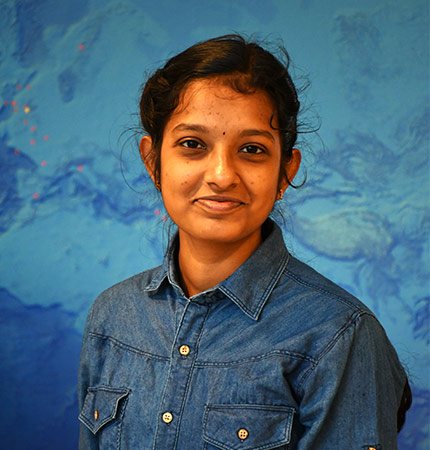Maximising bromoform production in Asparagopsis taxiformsis for methane reduction in food and feeds
The main objective is optimised yield of individual Asparagopsis taxiformis components as well as optimised overall productivity of cultivation and processing. The key considerations includes the impact cultivation on the quality and quantity of biomass, maximising the use of biomass, stability and sustainability of the cultivation system.
Supervisors
Professor Michele Stanley - SAMS
Funder
IBioIC and SAMS Enterprise
University
University of the Highlands and Islands
Employment
July 2022- October 2022 - Subject Matter Expert, LMES ACADEMY
October 2021-July 2022 - Academic Specialist, BYJU'S
Higher Education
2021 - MSc Botany, University of Madras
2019 - BSc Plant Biology & Plant Biotechnology , Guru Nanak College, University of Madras
